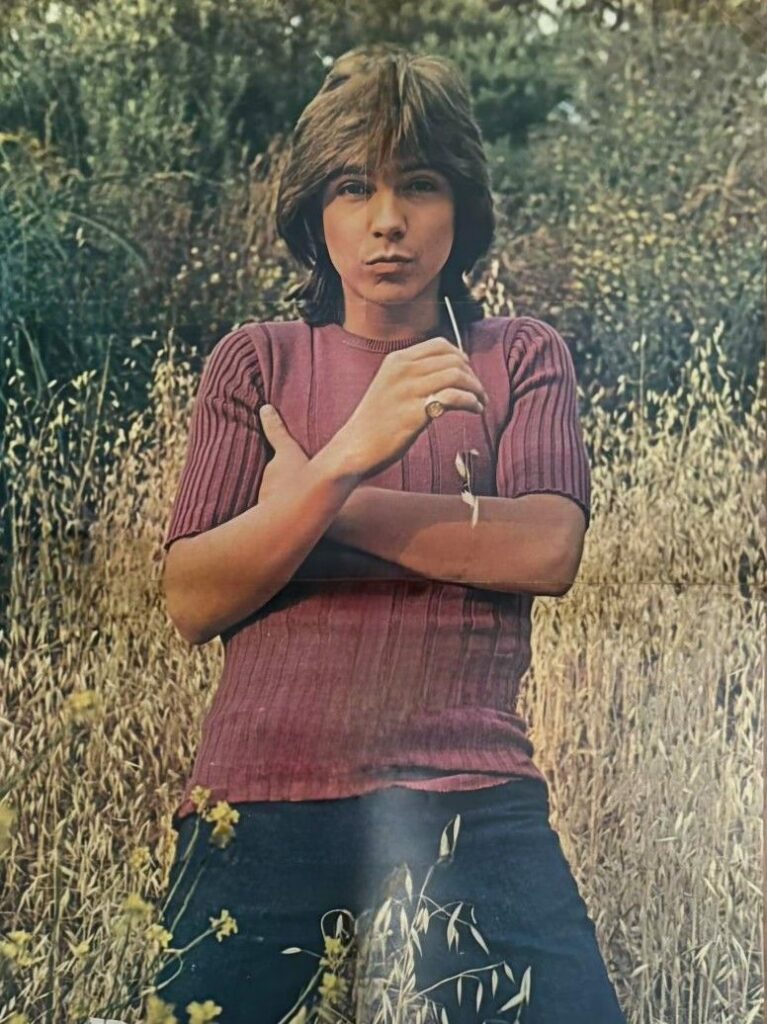
Ricky’s Tune: A Melancholy Echo of Lost Innocence and Fleeting Fame
Ah, the early 1970s. For many of us, it was a time of bell bottoms, flower power, and a particular kind of youthful exuberance that permeated the airwaves. And at the heart of much of that musical landscape, especially for a certain demographic, stood the undeniably charming David Cassidy. Today, we’re casting our minds back to a lesser-known, yet deeply resonant, track from his repertoire: “Ricky’s Tune.” While not a chart-topper in the same vein as his massive hits like “Cherish” or “I Think I Love You,” “Ricky’s Tune” holds a special place for those who dug a little deeper into his albums, offering a more introspective glimpse into the pop idol’s world. Though precise individual chart positions for album tracks can be elusive, it was released on his debut solo album, “Cherish,” in 1972, an album that itself was a monumental success, soaring to number 15 on the Billboard 200 chart. This album was a crucial step for Cassidy outside the confines of The Partridge Family, solidifying his status as a solo artist in his own right, even as the lines between his fictional and real personas often blurred for his ardent fanbase.
“Ricky’s Tune” is a song that quietly, almost wistfully, unravels a story of innocence lost and the inevitable passage of time. It speaks to that universal experience of looking back at a past friendship, a past self, and recognizing how much has changed, how much has been left behind. The “Ricky” in the title isn’t a specific individual, at least not in a literal, biographical sense that has been widely disclosed. Instead, Ricky serves as a poignant archetype – the childhood friend, the symbol of simpler times, perhaps even a representation of a part of Cassidy himself that was rapidly being overtaken by the whirlwind of superstardom. The lyrics paint vivid, albeit melancholic, pictures: “Where did all the laughter go, Ricky? / Where did all the sunshine fade?” These aren’t just questions posed to a forgotten playmate; they are existential musings on the fleeting nature of joy and the bittersweet reality of growing up.
For those of us who remember the frenzy surrounding David Cassidy – the screaming fans, the sold-out arenas, the ubiquitous posters adorning teenage bedroom walls – “Ricky’s Tune” offers a stark, yet beautiful, counterpoint to that often-manic energy. It’s a moment of quiet reflection amidst the storm. The song’s meaning deepens when we consider Cassidy‘s own life at the time. He was, by all accounts, a reluctant superstar, thrust into an unimaginable level of fame at a very young age. The pressures were immense, the scrutiny relentless. It’s not a stretch to imagine that a song like “Ricky’s Tune” was a personal catharsis, a way for him to process the dizzying speed of his ascent and the quiet casualties that often accompany such a trajectory. It’s a lament not just for a lost friend, but perhaps for a lost sense of normalcy, a bygone era of his own life before the glare of the spotlight became so all-consuming.
The song’s gentle acoustic guitar and Cassidy‘s earnest, unvarnished vocal delivery only enhance its reflective quality. It doesn’t try to be a grand statement; instead, it’s an intimate whisper, a personal rumination shared with the listener. It evokes that feeling of a quiet afternoon, perhaps looking out a window as rain falls, and allowing your mind to wander back through the corridors of memory. For older readers, it conjures up a familiar ache – the understanding that while some things endure, others inevitably slip away, leaving behind only echoes and faded photographs. It’s a reminder that even the brightest stars have their moments of quiet contemplation, their own private sorrows amidst the public adoration. “Ricky’s Tune” stands as a gentle, yet powerful, testament to the universal human experience of grappling with change, remembering what once was, and perhaps, quietly grieving what will never be again.